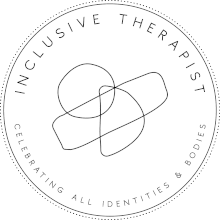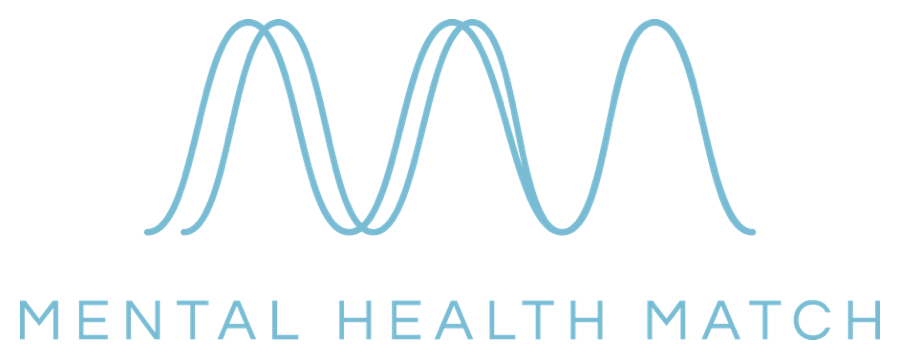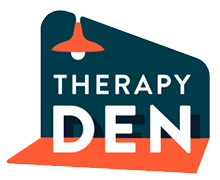North Texas
LGBTQ+ Trauma Therapy
Heal from the past. Reclaim your life.
Request a Free 15-Minute Consultation

You’re Not Broken: You’re Still Adapting to What Shaped You
“Even people who look like they’re doing well can feel hijacked inside. Trauma doesn’t just live in your memory — it lives in your body, your relationships, your sense of who you are.”
– Ellery Wren, LPC Associate
Plano TX Trauma Therapy
Types of Trauma
Trauma often falls into two categories: single event (accident, assault, etc.) or repeated exposure (abuse, neglect, shame, etc).
Complex Trauma (C-PTSD)
Complex trauma is caused by ongoing abuse, emotional neglect, chaotic caregiving, or environments that made you suppress your needs, feelings, or self. The ways you adapted to survive may become maladaptive later in life.
LGBTQ+ Trauma
LGBTQ+ Identity-based harm, microaggressions, family rejection, bullying, or hiding who you are can cause LGBTQ+ related trauma, leaving deep emotional scars and impacting how you navigate life and relationships.
Religious Trauma
Being shamed by your religion can be an incredibly painful and isolating experience. Religious trauma can also show up from purity culture, gender norms, religious teachings and traditions, and outright abuse. Some prefer to heal in a secular therapy environment, free from moral judgement.
Grief & Loss Trauma
Not all grief is trauma — but if the loss was sudden, unsupported, or layered with shame or isolation, it can leave your nervous system dysregulated long after the initial shock and numbness have passed.
Relational Trauma
Trauma doesn’t only happen in childhood or crises — it can happen in adult relationships, especially where there was emotional abuse, gaslighting, betrayal, or a loss of safety with someone you trusted.
Single-Event Trauma (PTSD)
An accident, assault, or one-time traumatic incident can overwhelm your system. You may experience flashbacks, nightmares, panic, or intense avoidance of certain places or people. EMDR Therapy can help.
Emotional Neglect
Sometimes what didn’t happen — the care, safety, or attunement you needed — becomes the deepest wound. This kind of trauma often leads to self-doubt, disconnection, or overfunctioning.
Developmental Trauma
Growing up in an environment of abuse or coercive control, where your autonomy is slowly taken from you has a lasting impact on your ability to feel like you have options and power in your life.
Medical & Body-Based Trauma
Medical trauma — especially for trans, disabled, or chronically ill people — can be complex and ongoing. This includes being dismissed, misdiagnosed, or touched without consent.
Systemic & Identity-Based Trauma
Discrimination, marginalization, and systemic violence — whether related to race, gender identity, sexuality, disability, body size, neurotype, or immigration status — can leave lasting trauma that affects safety, belonging, and self-esteem.
Our approach combines research-backed methods to help your brain, body, and inner self reconnect.
PLANO & FRISCO TEXAS
How Trauma Shows Up
Trauma doesn’t always look like flashbacks and panic attacks. Sometimes it hides in high achievement, people-pleasing, emotional shutdown, or feeling constantly on edge. These patterns aren’t character flaws — they’re survival adaptations your nervous system developed to protect you. But now, they may be keeping you from the life and relationships you want.
You Feel Everything, or Nothing
You may find yourself oscillating between overwhelming emotion and feeling nothing at all, which is a common trauma adaption.
Expecting to Be Disappointed
You might keep your guard up because, in your experience, you couldn’t depend on others. The adaptation that once protected you, now keeps you from connecting on a deeper level.
Shame That Doesn't match your life
You’ve worked hard and succeeded in many ways, but there’s still a part of you that feels like you’re never enough and everything could disappear in an instant.
You're Constantly Reading the Room
You pick up on the tiniest shifts in mood or expression. Even subtle disapproval feels like danger, and it’s hard to settle until things feel “right” again.
Always Busy
Perhaps you stay busy to avoid feeling intense emotions or dwelling on the past. You’re not lazy or avoidant — you’re protecting yourself from what might hurt.
Too Much & Not Enough
You worry your needs are a burden to others – that you’re too sensitive, too emotionally intense, too messy… and yet, somehow, still not enough.
Closeness vs Distance
You may crave connection, but intimacy might trigger fear, shame, or the urge to disappear. You might want connection but also struggle to find deep connection with others.
Over-functioning in Relationships
You’re the responsible one that everyone counts on, but no one sees how exhausted, resentful, or unseen you may feel underneath it all
Waiting to Feel Normal
You’ve built a good life, and maybe even done years of therapy. However, something in you still feels disconnected and unsettled.
Beyond the Labels
Trauma Therapy
You don’t have to understand the science. You’ll feel the difference in how your body softens, your mind quiets, and your reactions shift as you begin to heal from trauma.
EMDR
EMDR therapy helps your nervous system reprocess painful memories, so they lose their emotional charge and your trauma feels like something that happened to you – not something that defines you.
Parts Work
Part’s work, inspired by Internal Family Systems (IFS), helps you understand and connect with the different parts of yourself and build compassion for the ways they have tried to protect you.
Our approach combines research-backed methods to help your brain, body, and inner self reconnect.
PLANO & FRISCO TEXAS
What Healing Can Look Like
Even if you’re high-functioning on the outside, your trauma may live in your nervous system, your relationships, and your inner world.
Less Triggered
You’re not bracing or holding your breath all the time. You notice when you’re triggered — and you know how to come back to yourself without shutting down or spiraling.
The Shame Subsides
You recognize when you’re being hard on yourself, and instead of feeding into it, you pause and respond with curiosity instead of criticism.
Trust Can Your Instincts
You no longer second-guess what you say or feel. You feel more grounded in what you want, what you need, and can say “no” without feeling bad.
Respond Instead of Reacting
The old survival strategies still show up sometimes — but now you have space between the trigger and the choice. You feel more in control, rather than being controlled by your past.
Being Rather Than Performing
You are managing other people’s emotions and actions less, and you’re showing up authentically — even when it’s hard.
You Feel Connected
You’re not running from your history or hating your “broken” (or rejected) parts. You’re starting to understand why they were there — and how they helped you survive.
You don’t need to know what EMDR or parts work is. You just need to know that healing is possible — and that we’ll go at your pace.
Plano LGBTQ+ Trauma Therapy FAQs
Do I need a diagnosis to begin trauma therapy?
Nope! You don’t need to meet any criteria or have a specific diagnosis to begin healing. Many clients begin therapy unsure if they have experienced “counts” as trauma – if you’re asking that question, you’re probably in the right place.
Ready to get started? Contact us to see if we might be a good fit for therapy.
How do I know if trauma therapy is right for me?
You don’t have to be sure. That’s something we can explore together.
Do I have to talk about everything that happened?
How long does trauma therapy take?
Can trauma therapy help if I don't remember much of what happened?
COLLIN COUNTY TEXAS
Take the First Step
Frisco LGBTQ+ therapy: Your dedicated space for healing and growth in Plano, Texas (just south of Frisco).
Sage Finch Counseling
8105 Rasor Blvd, Suite 225
Plano, TX 75075
Most of our clients come from Collin County and surrounding areas:
|
|
Request a Free 15-Minute Consultation
* By clicking Submit, you permit us to contact you by email, phone, or text. Don’t worry – we won’t send you junk. It’s just to schedule a consultation and see if we can help you!









